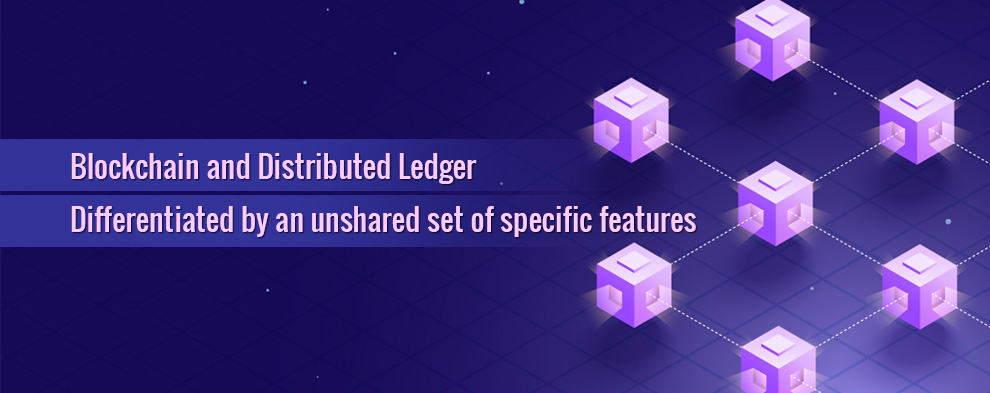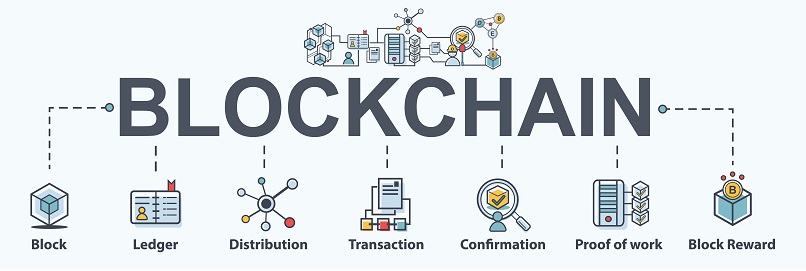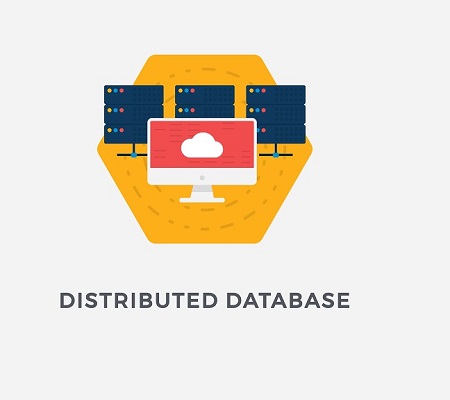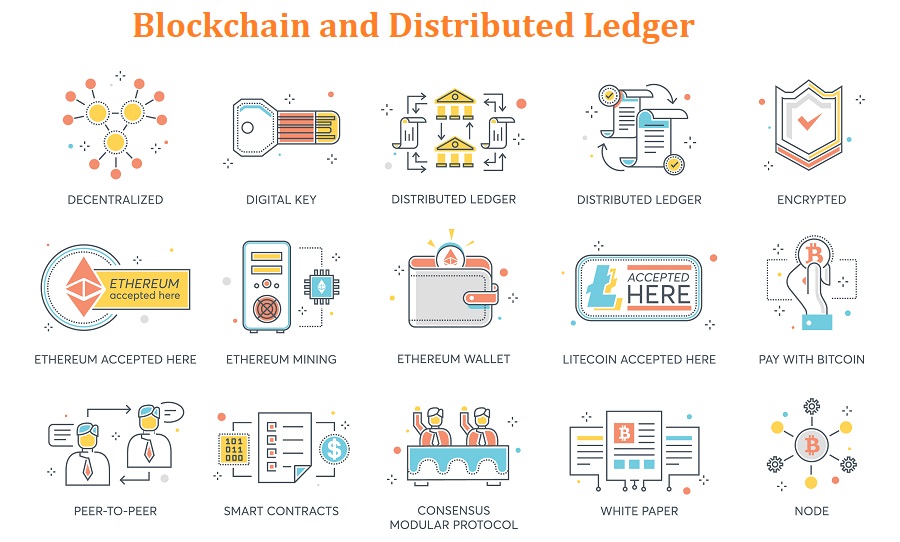
Difference Between Blockchain and Distributed Ledger
Over the past two years, the tech world has been witnessing a meteoric rise of blockchain and distributed ledger. These revolutionary applications are no more confined to cryptocurrency. Instead, their potential is now leveraged across various industries including supply chain, KYC, credit score, insurance, and healthcare to name a few.
In 2017, the global blockchain technology market was 339.5 million USD and as per Statista’s predictions, it is going to reach 2.3 billion U.S. dollars by 2021. This technology is going to revolutionize every industry spectrum in the future. To make this possible, the inception of this advanced technology should be done with complete consciousness. CIOs should have a complete rational grasp of the blockchain technology. They should first understand what blockchain is and how it can be leveraged properly to make their business disruptive.
That being said, this post will walk you through the distinction between blockchain and distributed ledger technology. We will be highlighting the difference between the two and share the fundamental aspects behind DLT (distributed ledger technology).
Why should we make the distinction between blockchain and distributed database?
As the cryptograph technology continues to boom, we’re seeing an insurgency of projects eager to integrate, tune and run on these technologies. This has led to the launch of several variations of the original blockchain project (BITCOIN). DLT systems have also ditched the idea of a decentralization altogether. As entrepreneurs become more aware of their potential, knowing the actual difference between the two could prove invaluable.
Difference between blockchain and distributed ledger
Before we dive into the differences, let’s have a quick sneak peek on definitions of the both.
What is blockchain?

This cutting-edge technology is a form of a shared database filled with data entries which are stored in encrypted form. Each entry is logically related to all its predecessors in form of ‘block’. It then gets added to the chain of transaction records. A cryptographic method known as hash is used to facilitate these blocks.
What is a distributed ledger?

A distributed ledger is a database that exists across several locations. It is decentralized, thereby eliminating the need for an intermediary to manage and validate transactions. All the files in DLT are timestamped and given a unique cryptographic signature.
Blockchain vs Distributed Ledger
Organisations like the Bank of England might favor the use of DLT to distance themselves from the hype and volatility associated to blockchain. Or for the same reason, a corporation may use the word blockchain to capitalize on the interest even if what they are offering isn’t truly, a blockchain.

| Blockchain | Distributed Ledger |
|---|---|
| Blockchain is a form of distributed ledger with a very specific technological groundwork. This shared ledger creates an immutable ledger of data entries that is managed by a decentralised network, where all records are approved by consensus. | DLT is a database of records that isn’t managed by any one central body just as blockchain. However, there is a small yet significant difference. The implementer, unlike blockchain's participants, has hugher share of control over its implementation. The implementor can mandate the structure, objective, and operation of the network that predicates its service. |
| The cryptographic integration and linking groups of records in the ledger in the form of a chain sets blockchain apart from DLT. | Distributed ledger is not 100% decentralized from an ideological point of view. This is so because the implementor still has control over the so called 'decentralized network'. |
Blockchain is a form of the distributed ledger with a very specific technological groundwork. This shared ledger creates an immutable ledger of data entries that are managed by a decentralized network, where all records are approved by consensus.
DLT is a database of records that aren’t managed by any one central body just as blockchain. However, there is a small yet significant difference. The implementer, unlike blockchain’s participants, has a higher share of control over its implementation. The implementer can mandate the structure, objective, and operation of the network that predicates its service.
The cryptographic integration and linking groups of records in the ledger in the form of a chain are the two major aspects which set blockchain apart from DLT.
Distributed ledger is not 100% decentralized from an ideological point of view. This is so because the implementer still has control over the so-called ‘decentralized network’.
To conclude
Blockchain and distributed ledger share a theoretical origin. They are decentralized and digitalized ledgers of entries. Often both these terms are confused and considered to be synonym of each other, but they are differentiated by an unshared set of specific features as listed above.
